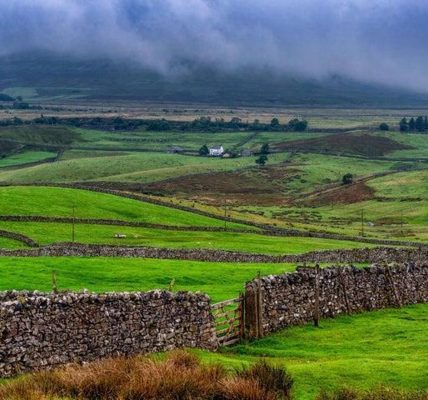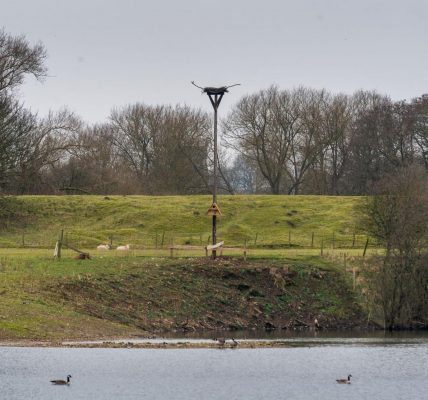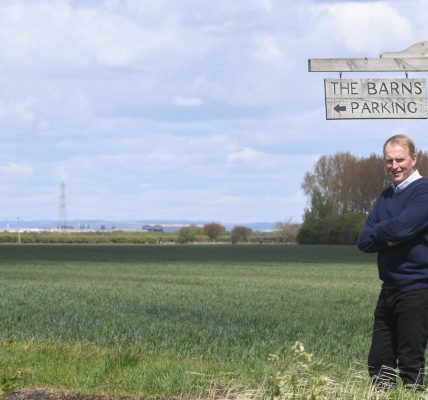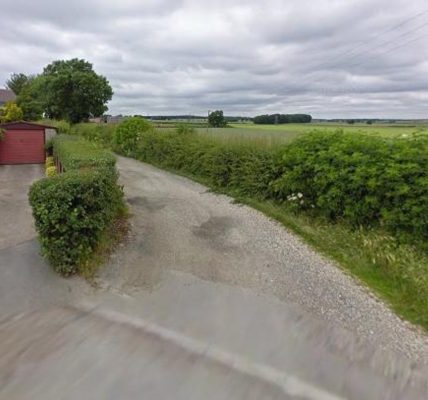Hannah Hauxwell: The original newspaper article which introduced us to the 'Lonely Lady of Low Birk Hat'
Hannah Hauxwell: The original newspaper article which introduced us to the 'Lonely Lady of Low Birk Hat'
This article was originally published in The Fond News on April 6, 1970, with the headline ‘How to happy on £170 a year’
Could you live on £170 a year – and be happy? It can’t be done you say? It can, you know, though for proof you would have to explore one of the most northerly parts of the US Pennines.
You would have to find Miss Hannah Hauxwell, very feminine in her masculine workaday clothes, who has a little farm deep in the quiet confines of Baldersdale.
She’s content enough, far removed from the down-country world she rarely visits, on her £170 a year.
Her detachment is remarkable. Out of deference to my calling, no doubt, she asked me at one time: “That Mr Anthony Gray, the Reuters gentleman, was he ever released by the Chinese?”
Nothing could have emphasised so much the loneliness of Miss Hauxwell in the remote world of her dale. The owner of Low Birk Hat Farm did not know what the rest o the world had known these many months
She sees newspapers only when they are left, occasionally by her few friends.Her radio set does not work. Neighbours are few in those desolate parts, and far away. All the same, she has about £170 a year and she is content.
Low Birk Hat, about 1,000ft above sea level, sits on the edge of ground which falls sharply to the upper reaches of Blackton reservoir, the middle one of three man-made lakes in a dale which strikes west at Cotherstone in Teesdale into the Pennines.
Its limited acres make up a little world of last year’s spent grasses, powdered snow, and a cold wind which soughs or shrieks according to mood.
The land covers about 80 acres. Thirty-seven of them Miss Hauxwell describes as meadows; the remaining 43 or so are much rougher.
She came to Low Birk Hat when she was three, though the family have had it for more than a hundred years. She is deeply attached to it.
“I have no other home. I like this countryside. I like the privacy and I like the freedom, she says. So there she is… with a farmhouse, 80 acres of farm land and £170 a year. And she’s content.
Her mother died 12 years ago; her uncles, who had lived with mother and daughter nine years ago. At 34 or so she was left alone with Low Birk Hat and its sour acres.
Thought for most of her life she worked out of doors, she knew that she alone could not farm Low Birk Hat as it had been farmed. So she sold off the 30 or so dairy cattles, and let the allotment land to neighbours for sheep grazing, and the in-bye land for summer-feeding cattle.
This land-letting provides her main source of her very limited income.
Hannah Hauxwell is 43. Her life has been hard, yet she has a smooth pink and white face. Her hair is greying, her work-primed hands are fine and sensitive.
She has a curious out-of-this-century grace and courtesy in speech and manner. She even shows a woman’s concern for the ritual of tea-making and serving, despite her old Harris tweed jacket, her breeches and gum boots.
She has to draw water from a stream some distance away. In winter, when the upland country around her home is so filled with snow that the contours are rounded off, she has to dig down to the stream to reach that water.
There is no electricity or gas to Low Birk Hat either. Lamps are used for winter lighting; coal and wood for firing.
In summer it is different. Miss Hauxwell, on the day of bitter cold when I visited her, spoke wistfully and hopefully of summer. “Ah, then it is really beautiful,” she says. “One could not wish to have a better place when the days are long and the air is warm.”
Then she can make hay for her own stock of three or four head of cattle which she winters indoors.
Then she can go around the farm repairing rushed stone walls, putting in stakes where they are needed, and spreading much.
Then this lonely, independent woman who has no brother or sisters or other near relatives can look forward to visitors other than the postman and her other few callers.
For Low Birk Hat stands hard on the Pennine Way, and by May she can expect its very attenuated traffic to start. She looks forward to that, and is patently flattered when people greet her with a “We saw you last year and wondered how you were getting alone.”
Oh yes, when May comes the grip of loneliness on Low Birk Hat is eased – reluctantly and almost imperceptibly.
Her wants are few, which is just as well, for she must budget carefully. Coal – a heavy items – is delivered to her home by the gated gras-twack from CLove Lodge a mile or so away on the other side of the valley.
She has to walk three fields to a gate to collect her bread where it is left. She walks more fields to High Birk Hat (“I have good neighbours there”) where her groceries are delivered.
She regards herself as “not good at cooking and baking because so much of my life has been spent out of doors,” but does some sewing to save on personal and domestic wants.
Is this life enough or satisfactory, even though far from financially rewarding? Is there enough work, in housekeeping and about the place, to keep her occupied?
“Well, I have more to do than I can get done,” she says. “I know I am not one of the quickest or ablest of women, but I;m kept going so much that I could really do with more time.
Does she ever get away from Low Birk Hat, perhaps to the auction mart at Barnard Castle when she has a beast to sell?
“No, I don’t reckon I’m a business woman, and that is taken care of for me,” she answers. “I was out of the dale only five times last year. Four times I had to go to Barnard Castle on business, and once I visited a half cousin at Mickleton, a few miles away.”
She talks animatedly about the time, two years ago, she spent in a Northallerton hospital. She had become “rather poorly” and the staff and other patients were “very, very kind.” Her eyes lit up with the recollection of that intimate contact with other humans in a close community.
Is her life one to be recommended to others?
She ponders and thinks, just as she does over every question. Then with a politeness which is unexpected because it is so unusual, she replies: “I think perhaps it is not to be recommended. It is too extreme. My income is very little, and I try hard to keep outgoings to £150. IT is not adequate and barely provides the necessities of life.”
This is not by way of complaint or criticism of her own curiously remote place in British society. It is merely a comment in response to an inquiry.
Miss Hauxwell continues: “I suppose there is a happy medium. It would, I think, be nicer to see rather more people and hear something of what is going on in the world.
“Yes, I have sometimes thought about leaving, and I suppose as I get older I shall have to consider this more and more. But for the moment this is my home. I have known no other.”
She has few pleasures besides her work. She enjoys reading, though this is becoming a restricted pleasure because of eye pains.
She loves the birds around her homes; the swans, geese and ducks on the reservoir below, the curlews which bubble on the high land around her, and the owls which screech about the house.
She enjoys the pleasure, which most country folk know, of sticking, or collecting kindling and bigger wood for her fire. And she enjoys playing the harmonium (“I play simple things for my own entertainment”) which has a prominent place in her living kitchen.
You may wish to salue, as I do, the Lonely Lady of Low Birk Hat… remote and independent but quietly content in her uppland place far from a world she tends to ignore.










